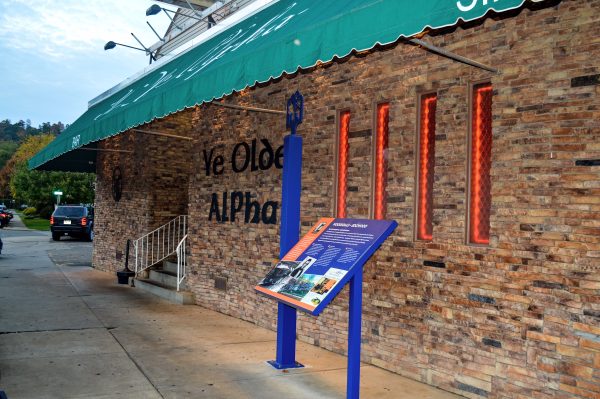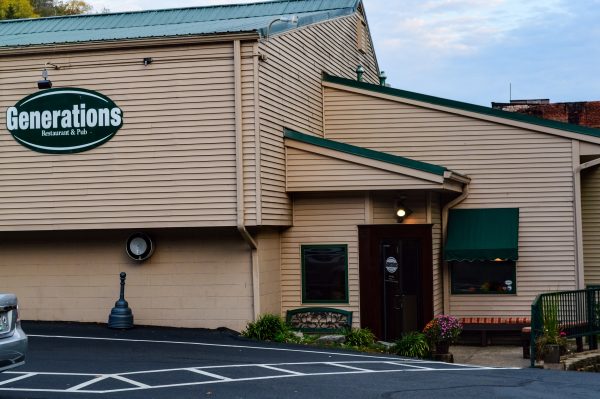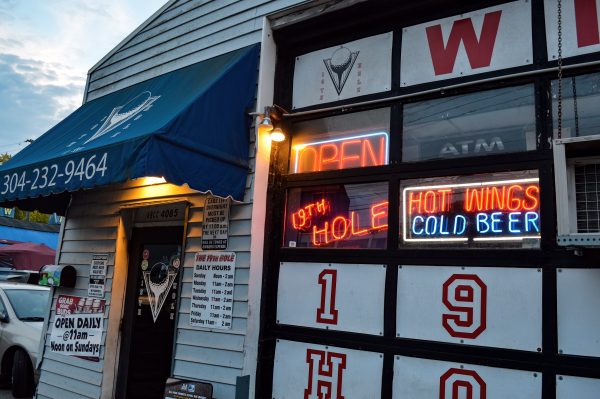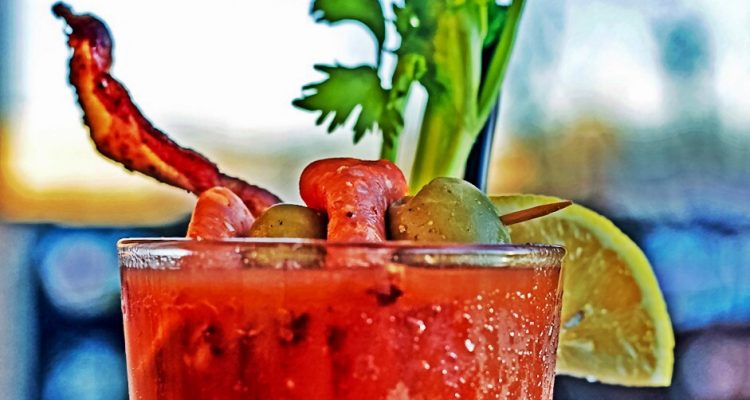Seventeen days before the majority of Ohio County voters will head to polling places to cast their ballots, the “Brunch Bill” goes into effect today in the city of Wheeling after a unanimous vote this past Tuesday by Wheeling Council and Mayor Glenn Elliott.
That means this morning at 10 a.m. all businesses with an Alcohol Beverage Control Administration Class A license within city limits are permitted to begin sales of alcoholic beverages like Mimosas, Bloody Marys, and beer. County voters will decide on Nov. 8 whether or not all other properly licensed restaurants and bars in Ohio County will be permitted to do the same after members of the West Virginia Legislature approved HB 7702 in February. The legislation included a county referendum, however, so voters in all interested counties must grant permission.
But Wheeling’s mayor and council followed several other cities in the Mountain State by utilizing Home Rule, an option for municipalities in the Mountain State to alter state code. Council and Elliott received approval from the state’s Municipal Home Rule Board to do so earlier this month.
“In our case, while we knew it was likely that the Ohio County Commission would put this issue on the ballot, we felt that this was an important enough issue for council to act, particularly given the potential for increased economic activity in the city,” Mayor Elliott explained. “So far, the response (to council’s actions) has been almost exclusively positive.
“I have tried to make clear to local residents that by moving forward with this initiative, council is not suggesting that people should consume alcoholic beverages on Sunday morning,” he said. “Instead, council is merely saying that it is not the role of government to micromanage residents’ lives on those same Sunday mornings.”

The case in favor of the “Brunch Bill” in Charleston during the regular legislative session was based on economic impact and increased tourism, and Elliott believes the city will see additional employment and an increase with B&O tax collections.
“Based on several conversations I’ve had with Frank O’Brien of the Wheeling-Ohio County Convention and Visitors Bureau and local restaurateurs, I am convinced that there is a demand for Sunday morning service that’s not being met by the status quo, particularly in those establishments that cater to the Sunday National Football League fans,” the mayor said. “And so yes, I expect this move to increase local economic activity and, by extension create more jobs and/or more employment hours.”
O’Brien, the executive director of the Wheeling CVB, has campaigned throughout Ohio County since the Ohio County Commission announced the public referendum would appear on the ballot in November.
“Extended hours on Sunday for serving brunch libations in Wheeling to responsible citizens means jobs, increased revenues without raising taxes, and makes good sense. It will also make Wheeling, West Virginia competitive with neighboring states,” he said. “Experience shows us travelers expect to be able to order alcohol with their Sunday brunch, and the ability to provide the service is necessary for Wheeling’s increasingly important tourist industry.
“And this is really about enhancing our tourism economy and allowing our tourist destinations an amenity their customers expect when they come to Wheeling,” O’Brien continued. “A difference of three hours on one day a week may not seem important, but for Wheeling and other businesses in the Northern Panhandle, a lot is at stake. With competing businesses in nearby Ohio and Pennsylvania, it can be tough to attract customers when you’re bound by law to say no. On any Sunday a high percentage of people visiting Wheeling destinations are from out of town.”
That is why O’Brien appreciated the actions taken by Wheeling Council and Mayor Elliott, and he now hopes county voters react the same way when casting ballots in a little more than two weeks.
“The city council’s Home Rule action is an example of city officials planning for the future in tourism. It’s about economic impact and providing businesses yet another opportunity to make extra money, especially many small businesses like restaurants and bars who work every single day to make it. Wheeling’s business community agrees the measure is 100 percent pro-business,” O’Brien said. “Wheeling’s tourism industry is committed to promoting the economic benefits and jobs the new ordinance will bring to the community. We also look forward to Wheeling and Ohio County voters also approving a parallel referendum in November.”

The co-owner of Ye Olde Alpha, Mark Thomas, is confident O’Brien will have his wish granted in Ohio County because of the difference in the mindset in the northern portion of West Virginia.
“I do believe it’s going to pass in Ohio County, and that’s because it’s located above the Mason-Dixon Line, and there’s a dramatic difference in the way people think in the Northern Panhandle of West Virginia than the majority of the rest of the state, especially the southern part,” he said. “That’s not a negative comment when I say that, either. It’s just a different attitude here, in East Ohio, and western Pennsylvania because we are all pretty much the same kind of people.
“That law may have been fine 100 years ago, but from a business standpoint, wouldn’t the people up here want their businesses to compete against the ones right across the Ohio River or across the Pennsylvania border? That’s the biggest reason why I think it will pass here,” Thomas continued. “The council and mayor were very proactive with their actions, and I believe the voters in Ohio County will be proactive, too, when passing it.”
Thomas reported that staffing changes have been made at The Alpha for this morning in order to accommodate customers who may want an alcoholic beverage after 10 a.m., but he remains in wait-and-see mode as far as what impact the new ordinance will have during Sunday mornings.
“I am pleased city council made those efforts, and I did have numerous conversations with Mayor Elliott, and I commend everyone involved,” said Thomas. “The law, quite frankly, was a little archaic and behind the times, and now for the first time that I can remember people will be able to have a drink in a restaurant legally before 1 p.m. We open at 10 a.m. on Sundays, and perhaps some people do not realize it, but we do serve a nice breakfast.
“And now at 10 a.m. we will be there awaiting the first person who wishes to imbibe a legal beverage, and we are working on a beverage and dessert menu so those folks will know exactly what we offer,” he said. “But honestly, in the beginning, I don’t think it will make too much of a difference, but that’s something we will find out. I don’t think it will make or break our Sunday mornings, but I do believe it will be a positive and, in no way a negative.”

Elliott, though, did receive some negative feedback over the “Brunch Bill” action he and the city’s six council members took.
“The only real criticism that I have heard had nothing to do with the actual policy here but instead focused on the notion that council has far more pressing options to concern itself with,” the mayor explained. “To that, I would say that council is perfectly capable of pursuing multiple initiatives at once. In this particular instance, city staff had already prepared the documentation for this Home Rule amendment for the prior council, although they decided not to act. When we decided to move forward, all that was really required was to update some dates on documents already prepared.”
The law passed by the state’s legislative body, however, included only alcohol sales at bars and restaurants but not from retail outlets like Gumby’s, convenient stores, and Riesbeck’s Food Market. W.Va. Del. Erikka Storch (R-3rd) said efforts to expand the bill to include such businesses failed during the regular session.
If Mountain State lawmakers venture in that direction in February and approve such sales, Elliott said he and the council members would most likely investigate another Home Rule action for the city of Wheeling.
“If the State Legislature grants us that authority, I would certainly take a serious look at it,” he said. “But my understanding is that the current authority extends only to on-site Sunday-morning alcohol consumption.”
(Photos by Steve Novotney)



